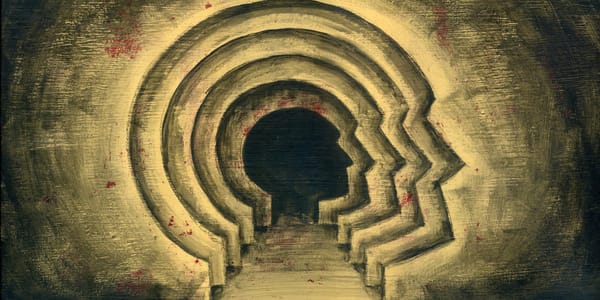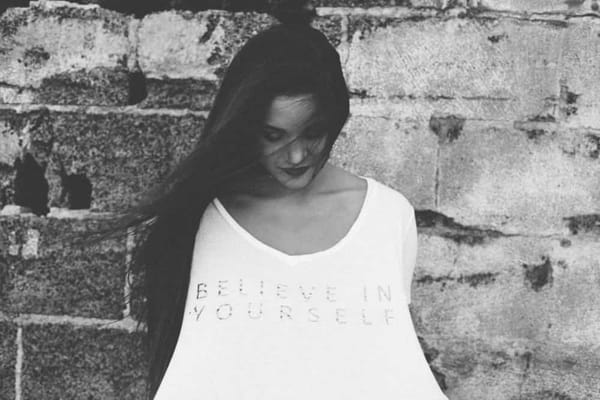The Hidden Psychology of Playing the Victim: When Pain Becomes Power

Have you ever met someone who always seems to be the victim? Every story they tell places them at the center of injustice. Every failure, every heartbreak, every falling out, it’s never their fault. At first, you might feel compassion. You listen. You comfort. You try to help. But slowly, a realization sets in: nothing ever changes. Their pain repeats like a broken record, and your empathy starts to feel manipulated. You begin to wonder, is this really about healing, or is it something darker?
"Some people don’t want healing, they just want witnesses to their suffering. Because if they ever got better, no one would look at them the same way."
What you’re witnessing may be more than just suffering. It may be a learned strategy, a survival mechanism turned psychological weapon. Welcome to the hidden world of the victim mentality, where pain becomes identity, and sympathy becomes control.
Not All Victims Are Innocent
Let’s be clear: some people are true victims of trauma, abuse, or systemic injustice. They need and deserve support, empathy, and safety. This article is not about them. This is about those who adopt the role of the victim not to heal, but to control, manipulate, and avoid accountability.
Playing the victim can be an unconscious pattern or a fully conscious strategy. Either way, it works. People rally to protect you. They lower their standards. They walk on eggshells. All while you remain emotionally stagnant, safe in the bubble of being “wronged,” shielded from change, responsibility, or self-reflection.
The Psychological Blueprint: How Victimhood Is Born
Victim mentality doesn’t appear out of nowhere. It’s often rooted in early life experiences—emotional neglect, inconsistent parenting, or a family dynamic where pain equaled attention. For some, the only time they were seen was when they were suffering. Over time, their brain makes a powerful association: “If I am hurt, I am loved.”
This belief becomes their emotional foundation. As adults, they unconsciously recreate scenarios that confirm this script. They’re drawn to chaos, to toxic relationships, to people who will disappoint them, just so they can reaffirm their role as the victim. Because in that role, they are not required to change. They are only required to suffer, and be seen suffering.
Victimhood as Identity: When Suffering Becomes a Lifestyle
What begins as pain can calcify into identity. Some people build their entire personality around their suffering. They wear it like armor, like a brand. Their social media posts are cryptic cries for attention. Their conversations are centered around past betrayals. Their relationships revolve around constant emotional validation.
Why? Because they’ve convinced themselves that their only value lies in their wounds. Being “okay” makes them invisible. Being healed makes them forgettable. And so, without realizing it, they become addicted to pain, not because they enjoy it, but because they fear who they’d be without it.
The Addictive Rewards of Playing the Victim
Pain, when unchecked, becomes power. And victimhood offers subtle, seductive rewards. Sympathy is one. Attention is another. But there’s more: victims gain the moral high ground. They can’t be criticized without the critic appearing cruel. They are rarely held accountable because it’s always “someone else’s fault.” Even more dangerously, they can use guilt as a tool, controlling others through emotional blackmail disguised as vulnerability.
This manipulation is often invisible. It doesn’t look aggressive. It looks like crying. Like passive-aggressive silence. Like martyrdom. But make no mistake: it’s control, hidden under the mask of fragility.
How Chronic Victimhood Destroys Relationships
At first, people are drawn to victims. We want to help. We want to heal. But over time, relationships with chronic victims become emotionally exhausting. Every interaction becomes about their pain. Every conversation is a rerun of a previous crisis. There’s no room for your needs, your feelings, or mutual growth. The emotional labor is one-sided, and sooner or later, people walk away.
And ironically, when they do, it becomes more fuel for the victim’s narrative: “See? Everyone leaves me. No one understands me. I’m always abandoned.” What they don’t see is that they’re the ones pushing people away with their unresolved patterns.
The Silent Emotional Blackmail You Never Noticed
Victimhood isn’t always loud. Sometimes, it’s whispered in guilt trips. In martyr-like sacrifices. In subtle suggestions that you owe them your time, your energy, your forgiveness, because they’re the one who’s “hurting.” It’s emotional blackmail wrapped in self-pity. And if you’re not careful, you become part of the game—supporting their stagnation while draining yourself dry.
The most dangerous part? They might not even know they’re doing it. Victim mentality can become so ingrained, so automatic, that it replaces self-awareness with entitlement to pain. They don’t want to heal. They want to be seen as healing—so they never have to actually change.
Are You Playing the Victim? Or Living With One?
This is the uncomfortable part. We’ve all, at some point, told a story that made us look better than we were. We’ve all used sympathy to shield ourselves from truth. But if you constantly find yourself blaming others, refusing to take accountability, or repeating the same painful patterns without progress, it’s time to ask: “Am I addicted to victimhood?”
Likewise, if you’re in a relationship, personal or professional, where you’re always the rescuer, always the fixer, always the one who sacrifices, it’s time to ask: “Am I being emotionally manipulated by someone who doesn’t want to change?”
Breaking Free: From Victimhood to Victory
Healing from this mindset isn’t easy. It demands the hardest thing of all: taking responsibility for your role in your suffering. It means choosing to grow even when it hurts, to confront yourself without flinching, and to let go of the identity built on being wronged.
It means shifting from “What happened to me?” to “What can I do about it?”
From “Look what they did,” to “Here’s what I’m doing next.”
From helpless to heroic.
Because healing is not about erasing your past. It’s about refusing to let it define your future.
You Were Hurt, But You Are Not Meant to Stay Broken
You are more than what happened to you.
You are more than the people who failed you.
And you are far more powerful than your victim story will ever allow you to believe.
Don’t let your pain become your personality. Don’t let your wounds become your excuse.
Feel it. Face it. Then rise from it. Because true power begins when you finally say:
“I will not live in the shadow of what broke me.”


